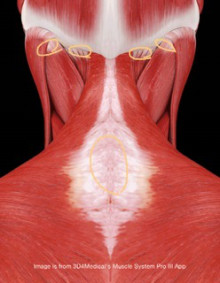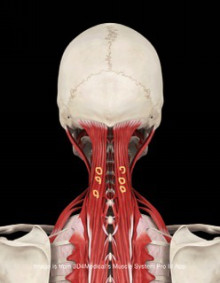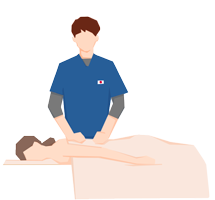CNMS (cervical neuromuscular syndrome) slight fever, dullness, dizziness, diarrhea, fatigue, headache
【female twenties】
【female twenties】



【female twenties】
【female twenties】
since the winter before the last, she has been suffering from headache, diarrhea, low fever, and fatigue.
she always has a fever of 37.5℃, feel dull and has difficulty concentrating.
When she went to the hospital, she was diagnosed with autonomic dysreflexia and has been taking medication every day.
she came to us for early treatment because it was interfering with her schoolwork.
on visual examination, there was a rash on the neck and back, and skin sebum was also observed.
palpation revealed severe swelling in the neck.
after interviewing her, we determined that she had numerous autonomic nervous system symptoms, all of which were caused by stiffness in her neck.
we judged that the stiffness caused autonomic symptoms such as diarrhea and low fever, and the stiffness caused dullness, dizziness, and fatigue.
in this case, headache symptoms related to the semispinalis muscle had also appeared, so we focused on that area.
as it would not be good to continue taking medication in the future, we concentrated on treatment with the goal of early improvement.

the treatment focused on the muscles of the occipital bone attachment area, while also treating the back.
●the treatment area: semispinalis capitis, platysma capitis, trapezius, and rhomboid muscles

in specific, i concentrated on the middle part of the head semispinalis muscle, which was difficult to palpate with the fingers due to swelling
Since she was having difficulty in her school life, we treated her with intensive acupuncture twice a week.Since she had a lot of edema, she was treated with acupuncture first to remove the edema, and then with manual therapy.
1st to 15th treatment: symptoms did not improve easily. however, she could feel the acupuncture strongly. anyway, she had a low fever.
16th to 32nd treatment: low fever went down. dullness, dizziness, and diarrhea also disappeared.
changed to weekly treatment.
33rd to 48th treatment: all symptoms disappear. there were some symptoms when she was tired, but they did not worsen.
she able to graduate from school without any problems.
